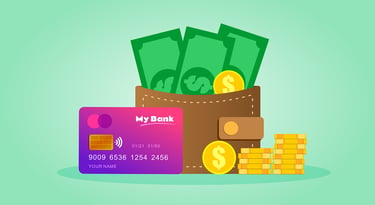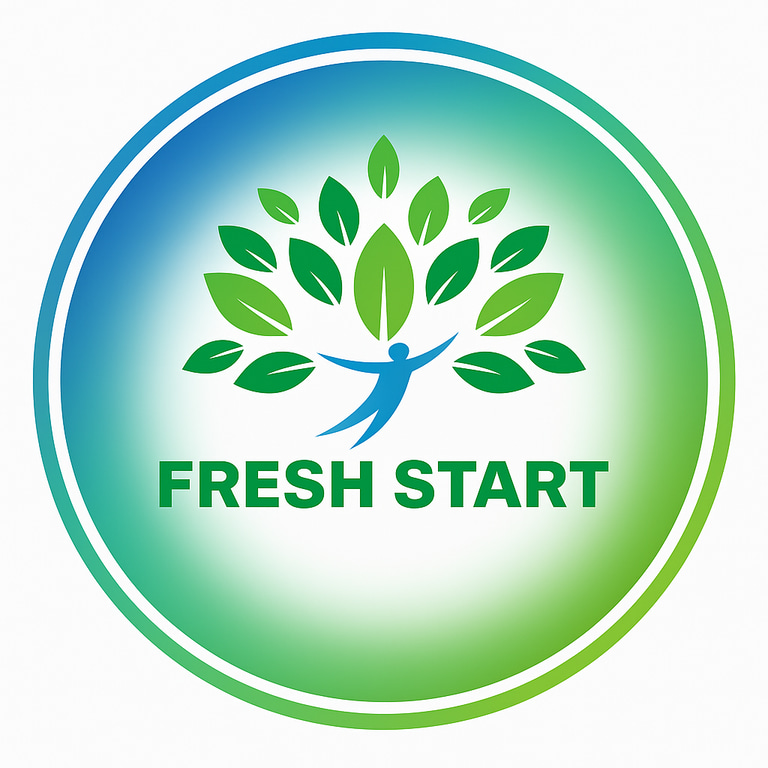Best Habits for First-Time Credit Card Users to Build Strong Credit
Getting your first credit card is an exciting milestone that opens doors to financial opportunities and independence. However, it also comes with significant responsibility and the potential for both positive and negative long-term consequences.
BUILD STRONG CREDIT
Fresh Start Consulting
7/9/20256 min read


Best Habits for First-Time Credit Card Users to Build Strong Credit
Getting your first credit card is an exciting milestone that opens doors to financial opportunities and independence. However, it also comes with significant responsibility and the potential for both positive and negative long-term consequences. The habits you develop as a first-time credit card user will largely determine whether this powerful financial tool becomes an asset that builds your credit score or a liability that creates lasting financial challenges.
Building strong credit requires understanding how credit cards work, developing disciplined spending habits, and maintaining consistent financial behaviors over time. The good news is that with the right approach from the beginning, you can establish an excellent credit foundation that will serve you well throughout your financial journey.
Understanding the Fundamentals of Credit Building
Before diving into specific habits, it's essential to understand how credit cards impact your credit score. Your credit score is calculated based on five key factors: payment history (35%), credit utilization (30%), length of credit history (15%), types of credit (10%), and new credit inquiries (10%). As a first-time user, you'll primarily focus on the first two factors, which together account for 65% of your score.
Payment history tracks whether you make at least the minimum payment by the due date each month. This is the most crucial factor in determining your creditworthiness. Credit utilization refers to how much of your available credit you're using at any given time. Keeping this percentage low demonstrates responsible credit management and positively impacts your score.
Understanding these fundamentals helps you realize that building credit isn't about spending as much as possible on your credit card. Instead, it's about demonstrating consistent, responsible use over time while maintaining low balances relative to your credit limits.
Habit 1: Always Pay Your Full Balance
The most important habit for first-time credit card users is paying the full statement balance by the due date every month. This practice accomplishes several critical goals simultaneously: it prevents interest charges, maintains perfect payment history, and ensures you never spend more than you can afford to pay back.
Many new users mistakenly believe they need to carry a balance to build credit, but this is a costly myth. Carrying a balance doesn't improve your credit score and results in unnecessary interest charges that can quickly accumulate. By paying your full balance, you essentially use your credit card as a convenient payment method while building credit at no cost.
Set up automatic payments for the full statement balance to ensure you never miss a payment. Most credit card companies offer this option, and it eliminates the risk of forgetting a due date or making a late payment that could damage your credit score. If you're concerned about automatic payments, you can set them up for the minimum amount due as a backup while manually paying the full balance.
Habit 2: Keep Credit Utilization Below 30%
Credit utilization is the second most important factor in your credit score calculation. This ratio compares your credit card balances to your credit limits across all your cards. For optimal credit building, keep your utilization below 30% of your total available credit, with below 10% being even better.
As a first-time user, this might seem challenging if you have a low credit limit. However, you can manage utilization through strategic timing and spending control. Consider making multiple payments throughout the month rather than waiting for the statement to arrive. This approach keeps your reported balance low even if you use your card frequently.
Monitor your spending regularly to ensure you don't approach your credit limit. Many credit card apps provide real-time balance updates and spending alerts that can help you stay within your target utilization range. Remember that utilization is calculated based on the balance reported to credit bureaus, which typically occurs when your statement is generated.
Habit 3: Use Your Card Regularly but Responsibly
Inactive credit cards don't contribute to building your credit history effectively. Use your credit card for regular purchases like groceries, gas, or recurring bills, but only for expenses you would make anyway. This approach demonstrates active account management while avoiding unnecessary debt.
Start with small, manageable purchases that you can easily pay off each month. This might include your monthly streaming subscriptions, coffee purchases, or grocery shopping. The key is treating your credit card like a debit card mentally – only spending money you already have available in your checking account.
Avoid the temptation to use your credit card for impulse purchases or items you can't afford to pay for immediately. This discipline is crucial for developing healthy financial habits that will serve you well throughout your life. Remember that the goal is building credit, not maximizing spending.
Habit 4: Monitor Your Credit Report and Score
Regularly checking your credit report and score helps you track your progress and catch any errors early. You're entitled to free credit reports from each major bureau annually through annualcreditreport.com. Many credit card companies also provide free monthly credit score updates to their customers.
Review your credit report for accuracy, ensuring all information is correct including your personal details, account information, and payment history. If you find errors, dispute them immediately with the credit reporting agency. Even small errors can impact your score, so vigilance is important.
Understanding your credit score trends helps you see how your habits are impacting your credit building efforts. You'll notice improvements over time as you maintain good payment history and low utilization. This feedback can be motivating and help you stay committed to good credit habits.
Habit 5: Set Up Account Alerts and Automation
Technology can be your best friend in developing good credit habits. Set up various alerts through your credit card company's app or website to help you stay on track. Useful alerts include payment due date reminders, balance notifications when you approach certain thresholds, and transaction alerts for security purposes.
Beyond alerts, automate as much as possible to remove the potential for human error. Automatic payments ensure you never miss a due date, while automatic savings transfers can help you build the funds needed to pay your credit card bills. Consider setting up a separate savings account specifically for credit card payments to ensure the money is always available.
Many users find it helpful to set up weekly or bi-weekly automatic transfers to their credit card account, essentially treating it like a bill that needs to be paid regularly rather than waiting for the monthly statement. This approach helps maintain lower balances and makes payment management easier.
Habit 6: Avoid Cash Advances and Convenience Checks
Cash advances and convenience checks might seem like easy access to money, but they typically come with high fees and interest rates that begin accruing immediately. These transactions don't help build your credit any more than regular purchases, but they can quickly lead to expensive debt.
Focus on using your credit card for regular purchases where you can earn rewards and build credit without additional fees. If you need cash, use your debit card or visit your bank rather than taking a cash advance. This discipline helps you avoid unnecessary costs while building positive credit habits.
Understanding the full cost of different credit card features helps you make informed decisions about how to use your card most effectively. Read your credit card agreement carefully to understand fees, interest rates, and terms that might impact your credit building efforts.
Habit 7: Keep Your Account Open and In Good Standing
Length of credit history accounts for 15% of your credit score, making it important to keep your first credit card open for as long as possible. Even if you eventually get cards with better rewards or terms, keeping your first card active contributes to your average account age and total available credit.
If your first card has an annual fee that becomes burdensome, contact your credit card company to ask about downgrading to a no-fee version of the card. Many issuers will allow you to switch to a different card product while maintaining your account history and credit limit.
Use your first card occasionally even after getting additional cards to keep it active. Many credit card companies will close accounts due to inactivity, which could negatively impact your credit score by reducing your available credit and potentially shortening your credit history.
Building Long-Term Success
Developing strong credit habits as a first-time user sets the foundation for a lifetime of financial success. The discipline you develop now will serve you well when you're ready for major purchases like a car or home. Good credit habits become second nature with practice, making future financial decisions easier and more beneficial.
Remember that building credit is a marathon, not a sprint. Focus on consistency rather than perfection, and don't be discouraged if your credit score doesn't improve immediately. Most positive changes become visible within a few months of consistent good habits.
Consider your first credit card as a learning opportunity to develop financial discipline and responsibility. The habits you build now will influence your financial well-being for years to come, making it worth the effort to establish strong practices from the beginning.
Conclusion
Building strong credit as a first-time credit card user requires commitment, discipline, and understanding of how credit works. By consistently paying your full balance, keeping utilization low, using your card responsibly, and monitoring your progress, you'll establish an excellent credit foundation that opens doors to future financial opportunities.
The key to success lies in treating your credit card as a tool for building credit rather than a source of easy money. With patience and consistent good habits, you'll develop the financial discipline needed for long-term success while building a credit score that serves you well throughout your financial journey.
CONTACT INFO
Address
Bringing People Hope
Email to find out how it works!
info@freshstartconsult.com
FRESH Start Consulting
100 Matawan Road
Matawan, NJ 07747
Suite 325 #1129
